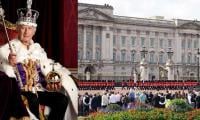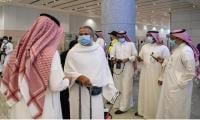ISLAMABAD: Truth appears to be the biggest threat that Pakistan faces after terrorism. An officially certified reply to the Right to Information application indicates as if a truth-teller will be tried under the anti-terrorism act for revealing the details documented in judicial commissions set up over the time.
This practice of hiding malpractices is across the board. Chief Minister Shahbaz Sharif’s government has set the latest example in this regard. An RTI application filed by The News in August 2015 sought the reports of inquiry commissions set up between 2008 and 2015 by
the Punjab government.
The reply delivered after deliberate delay and only through the intervention of the Punjab Information Commission said the disclosure “is likely to cause harm to the public order.”Included among them are judicial commission reports on the Model Town incident, the Gojra riots, spurious drugs that caused death of 60 heart patients at the Punjab Institute of Cardiology, sectarian killings in Raja Bazar, Rawalpindi, and others. As many as 14 commissions were constituted during the prescribed period in Punjab and the truth determined in none of the reports appears to be digestible for the public at large. This raises questions about the utility of such inquiries which have become a convenient tool to distract the public attention as their findings are not made public.
A similar request to the federal government didn’t receive a reply much different from the Punjab government. “Requisite information falls within the mischief of mischief of the Freedom of Information Ordinance 2002,” replied the law ministry. Making that public, the ministry argued, will create “unnecessary problems, embarrassing situation and open a pandora box for the government.”
Right from Hamood-ur-Rehman Commission in 1971 to the Abbottabad Commission in 2011 and onward, the government has never released the findings. The Saleem Shehzad Commission and Inquiry Commission on Alleged Rigging in 2013 Elections are the only two exceptions.
The News had requested through the RTI application for the reports of the commission that the federal government had set up between 2008 and 2015 that were refused on the basis of Pandora’s box argument.
The response of Khyber Pakhtunkhwa government is not encouraging either. It initially sought clarification whether The News needed the reports of commissions set up for the departmental reforms or inquiries into different incidents. When corrected that inquiry commissions’ reports were under question, the provincial government has not responded after the passage of more than a year.
As for as Punjab government’s detailed reply is concerned, it has named the commissions set up and claimed that no expenses were incurred on the fact-finding. In each case, the official reply said, the concerned officers were instructed to implement the recommendations of the commissions. What were the findings remained a top secret.
The riots in Gojra in 2009 led to the formation of the first inquiry commission in the prescribed period (2009-2015). Scores of houses and a church were set ablaze by masked miscreants and the incident claimed the lives of eight Christians who were burnt alive.
The Punjab government, shy of sharing findings as disclosure of the same is likely to cause harm to the public order, said “all stakeholders were instructed for compliance in view of the report.” The next commission was on flood of 2010. Again, all stakeholders were instructed in view of the report but the report has been swept under the carpet.
A commission on loadshedding protests in Gujar Khan in 2011 met the same fate. A firing incident in Mianwali that claimed two lives resulted in the formation of the third commission. The outcome remains unknown.
Findings of the commission set up after Shah Alam Market fire incident has also not been made public. Another commission was formed on spurious drugs that claimed the lives of 70 heart patients. Its report has not been made public to prevent “harm to the public order”.
Report on the loadshedding protest in Kamalia has also been treated as top secret. People had died after consuming poisonous food in Melsi (Vehari) and reporting the findings of commission can also endanger the public order, according to the official reply.
Even the report that determined the causes of the killing of a condemned Indian prisoner in the Central Jail, Lahore, in 2013 has not been made public to keep the public order intact. The fate of the findings on sectarian clashes in Raja Bazar Rawalpindi in 2013 is not different.
Three children were burnt in a fire that had broken out in Ichra (Lahore) in 2014. The causes behind this tragedy determined through a fact-finding commission have been kept away from the public view in the best public interest.
The same happened in the case of Model Town incident in which the sitting government was accused of killing workers of Pakistan Awami Tehreek.
Kasuri urged authorities of Pakistan and China to pull their resources to defeat forces seeking to disrupt the...
IHC said that several people had not returned the cipher copies they had, and asked if it meant it was right for the...
Gilani gave floor to Leader of Opposition Syed Shibli Faraz, who insisted that with unity they could take country...
Match witnessed intense action and dramatic twists, keeping fans on the edge of their seats until the final ball
Apex court bench was reconstituted after Justice Yahya Afridi recused himself from hearing the case earlier this month
ECP issued a notification in this connection pursuant to orders passed by LHC







